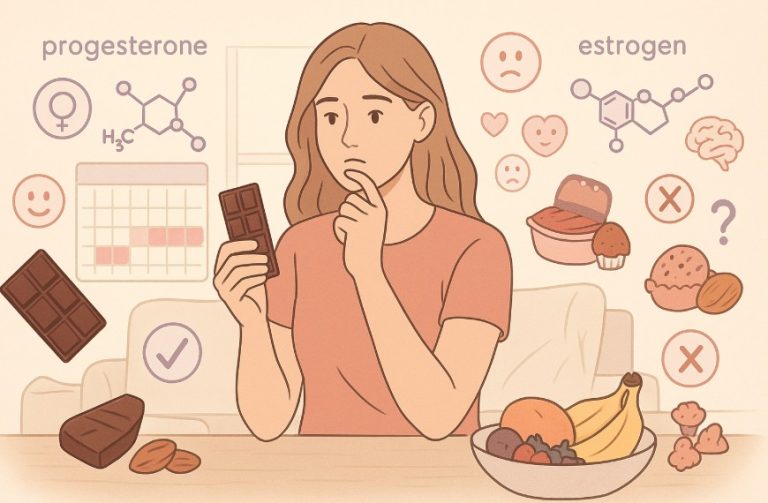Have you ever wondered why sweet potatoes are often hailed as a superfood? Why do dietitians, nutritionists, and health-conscious individuals alike include them regularly in their meals?
It’s not just about their naturally sweet flavour or vibrant colour, sweet potatoes are packed with essential nutrients that support overall health, from digestion and immunity to heart and brain function.
Despite their humble appearance, sweet potatoes are among the most versatile and nutrient-dense root vegetables available. Grown in various colours, orange, white, and purple, they offer unique nutritional benefits that go far beyond traditional carbohydrates.
Let’s explore in depth why sweet potatoes are so good for you and how they can play a transformative role in a healthy, balanced diet.
What Nutritional Value Do Sweet Potatoes Offer?

Sweet potatoes are considered a highly nutritious food, containing a well-balanced array of macronutrients and micronutrients. A single medium-sized baked sweet potato with skin (about 114g) offers:
| Nutrient | Amount | Health Impact |
| Calories | 103 kcal | Low in energy, suitable for weight management |
| Carbohydrates | 24 g | Provides steady energy release |
| Dietary Fibre | 4 g | Promotes digestive health |
| Protein | 2 g | Supports tissue repair and enzyme function |
| Vitamin A (as Beta-Carotene) | 1,100 mcg RAE | Essential for vision, immunity, and skin health |
| Vitamin C | 22 mg | Aids immune function and collagen production |
| Potassium | 542 mg | Helps maintain fluid balance and lower blood pressure |
| Manganese | 0.3 mg | Supports metabolism and bone health |
| Vitamin B6 | 0.3 mg | Important for brain development and hormone regulation |
This nutrient profile positions sweet potatoes as an ideal food for maintaining overall wellness, especially due to their high concentration of beta-carotene, antioxidants, and fibre.
How Do Sweet Potatoes Benefit Digestive Health?
One of the most recognised health benefits of sweet potatoes is their positive impact on digestion. Rich in both soluble and insoluble fibre, sweet potatoes help to maintain healthy gut function and regular bowel movements.
Soluble fibre absorbs water and forms a gel-like substance in the digestive tract, slowing down digestion and stabilising blood sugar levels.
Insoluble fibre, on the other hand, adds bulk to stools and facilitates smooth movement through the intestines. Together, these fibres contribute to reduced instances of constipation and a healthier colon.
Moreover, sweet potatoes contain resistant starch, which bypasses digestion and ferments in the colon, producing short-chain fatty acids.
These compounds nourish the cells of the intestinal lining, reduce inflammation, and support a stronger gut barrier, essential for absorbing nutrients and protecting against harmful pathogens.
Studies also indicate that antioxidants found in sweet potatoes, especially in the purple variety, foster the growth of beneficial gut bacteria such as Bifidobacterium and Lactobacillus, further enhancing digestive health.
Can Sweet Potatoes Help Regulate Blood Sugar?

Contrary to assumptions about sweet foods, sweet potatoes can actually aid in blood sugar control.
They have a low to medium glycaemic index depending on how they’re prepared, which means they release glucose into the bloodstream at a slower rate than many other carbohydrate-rich foods.
The fibre in sweet potatoes plays a crucial role here. By slowing the digestion of carbohydrates, fibre helps prevent rapid blood sugar spikes after meals.
This makes sweet potatoes a suitable food choice for individuals with type 2 diabetes or those at risk of developing insulin resistance.
Some clinical studies have also highlighted the potential of sweet potato extracts to improve HbA1c levels, an important marker for long-term blood sugar management, especially when consumed consistently over a few months.
What Role Do Sweet Potatoes Play in Heart Health?
Heart disease remains one of the leading causes of death globally, and diet is a significant contributor to cardiovascular risk. Fortunately, sweet potatoes offer multiple heart-friendly nutrients and compounds.
Their high potassium content helps regulate blood pressure by counteracting the effects of sodium in the diet. Potassium promotes vasodilation, easing the tension in blood vessel walls and reducing strain on the heart.
Soluble fibre in sweet potatoes binds with bile acids in the gut, preventing their reabsorption and prompting the liver to use cholesterol to make more bile.
This process helps lower LDL (bad cholesterol) levels and supports overall cardiovascular health.
Sweet potatoes are also rich in antioxidants like beta-carotene and vitamin C, which help protect the heart by reducing oxidative stress and inflammation, a major factor in atherosclerosis (hardening of the arteries).
Do Sweet Potatoes Support the Immune System?

Yes, sweet potatoes are an excellent immune-supporting food. Their high vitamin A content, derived from beta-carotene, is essential for maintaining mucous membranes in the respiratory and gastrointestinal tracts, two of the body’s first lines of defence against pathogens.
Vitamin C works synergistically with vitamin A to enhance immune cell function, improve wound healing, and fight infections.
Additionally, sweet potatoes contain several phytochemicals, such as flavonoids and anthocyanins, that modulate immune activity and reduce inflammation.
While more research is needed to directly correlate sweet potato consumption with enhanced immunity in humans, their nutrient composition clearly supports a healthy immune system, particularly during times of stress, illness, or seasonal change.
How Do Sweet Potatoes Contribute to Eye Health?
Vitamin A plays a critical role in maintaining healthy vision. Sweet potatoes, especially the orange-fleshed variety, are exceptionally rich in beta-carotene, which the body converts into vitamin A.
This nutrient is integral to the function of photoreceptor cells in the retina. A deficiency in vitamin A can lead to night blindness and more severe eye disorders like xerophthalmia.
In countries where vitamin A deficiency is prevalent, the introduction of sweet potatoes into the diet has significantly improved eye health.
Anthocyanins found in purple sweet potatoes also offer protective effects against oxidative damage to eye tissues, potentially reducing the risk of age-related macular degeneration and other vision-related issues.
Can Eating Sweet Potatoes Improve Brain Function?

There is growing evidence that the antioxidants in sweet potatoes may benefit cognitive health.
Animal studies suggest that anthocyanins, particularly from purple sweet potatoes, can reduce neuroinflammation and improve spatial learning and memory.
Though research in humans is still limited, these findings are promising. Diets rich in antioxidants and polyphenols have been consistently linked with slower rates of cognitive decline, reduced risk of Alzheimer’s disease, and improved overall brain performance.
The presence of essential micronutrients such as vitamin B6 and manganese also supports neurotransmitter function and brain development.
Are Sweet Potatoes Effective for Weight Management?
Sweet potatoes can be beneficial for those looking to maintain or lose weight. They are relatively low in calories yet high in fibre, which increases satiety and reduces the urge to snack between meals.
The complex carbohydrates in sweet potatoes provide sustained energy, helping individuals stay fuller longer compared to simple carbohydrates.
Their natural sweetness can also satisfy sugar cravings in a healthy way, reducing the temptation to consume high-sugar processed snacks.
In balanced portions, sweet potatoes can serve as an excellent carbohydrate option in weight loss or maintenance diets.
Do Sweet Potatoes Have Anticancer Properties?

Sweet potatoes, particularly the purple varieties, contain anthocyanins, a class of antioxidants linked to cancer prevention.
Laboratory studies have shown that these compounds may inhibit the growth of several cancer cell types, including breast, colon, stomach, and bladder cancers.
Although human studies are still in early stages, the mechanisms through which sweet potatoes exert these effects include reducing oxidative DNA damage, modulating inflammation, and influencing the activity of immune and cancer-related genes.
Their rich phytochemical profile carotenoids, tocopherols, and phenolic compounds, contributes to their reputation as a food with significant anticancer potential.
Are There Any Risks Associated with Eating Sweet Potatoes?
While sweet potatoes are generally safe and health-promoting, there are a few considerations to keep in mind:
- High oxalate content can contribute to kidney stone formation in susceptible individuals. Pairing sweet potatoes with calcium-rich foods can help mitigate this risk.
- Carotenodermia is a harmless condition where the skin takes on an orange tint due to excessive intake of beta-carotene. It resolves once intake is reduced.
- Individuals with certain medical conditions (such as chronic kidney disease) may need to moderate their potassium intake, including from sweet potatoes.
Overall, these concerns are minimal for healthy individuals eating sweet potatoes as part of a balanced diet.
How Should Sweet Potatoes Be Prepared for Maximum Nutrition?
Different cooking methods can affect the nutritional content of sweet potatoes. Research suggests that boiling and air-frying are the best options for retaining and enhancing nutrient availability, especially beta-carotene.
Best preparation methods:
| Method | Nutrient Retention | Description |
| Boiled | High beta-carotene retention | Cook in water; better with skin on |
| Air-fried | Low oil, nutrient-preserving | Ideal for fries or chips with less fat |
| Baked | Moderate retention | Enhances sweetness and texture |
| Mashed | Great for combining nutrients | Mix with herbs, spices, and healthy fats |
| Sautéed | Quick and versatile | Use olive oil for added healthy fat |
Adding a small amount of healthy fat, like olive oil or avocado, helps the body absorb fat-soluble nutrients like beta-carotene more efficiently.
Frequently Asked Questions
Can sweet potatoes be included in a diabetic diet?
Yes, due to their fibre and lower glycaemic index, sweet potatoes can be consumed in moderation by people with diabetes.
Is it healthy to eat sweet potatoes daily?
Eating sweet potatoes daily is generally safe for most individuals when portion sizes are controlled and the diet is well-balanced.
Should sweet potatoes be eaten with the skin?
Yes, the skin contains additional fibre, antioxidants, and minerals. Just make sure to scrub it clean before cooking.
Are purple sweet potatoes healthier than orange ones?
Each variety offers different benefits like orange for beta-carotene, purple for anthocyanins. Both are excellent additions to the diet.
How should sweet potatoes be stored at home?
Store in a cool, dark, and well-ventilated place. Avoid refrigeration as it may alter texture and taste.
Can sweet potatoes help with constipation?
Yes, their high fibre content supports regular bowel movements and gut health.
Are sweet potatoes better than white potatoes?
Sweet potatoes offer more antioxidants and vitamin A, while white potatoes have more potassium. Nutritional needs may determine the better choice for an individual.
READ MORE:






